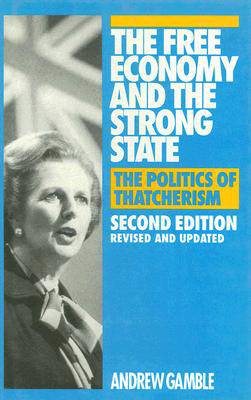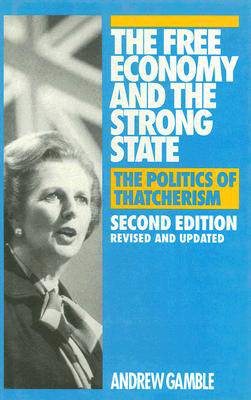
- Retrait gratuit dans votre magasin Club
- 7.000.000 titres dans notre catalogue
- Payer en toute sécurité
- Toujours un magasin près de chez vous
- Retrait gratuit dans votre magasin Club
- 7.000.0000 titres dans notre catalogue
- Payer en toute sécurité
- Toujours un magasin près de chez vous
The Free Economy and the Strong State
The Politics of Thatcherism
Andrew GambleDescription
By the time Margeret Thatcher resigned as Prime Minister in 1990, she has tranformed the fortunes of her Conservative Party. Under her leadership the Conservatives won three general election victories in a row over a divided opposition and enjoyed a degree of political and ideological dominance that led many to speak of the end of the socialist era and the emergence of a new consensus. What Reagan had done in the United States, Margaret Thatcher had done in Britain. A new word--Thatcherism--had entered the political lexicon.
Thatcherism came to signify a wide-ranging and distinctive political project aimed at promoting economic recovery and restoring the authority of the state. This second, revised and updated edition of The Free Economy and the Strong State explores the political and ideological roots of Thatcherism and its relationship to the Conservative tradition and to the economic liberal ideology of the New Right, as well as to the new political agenda which emerged from the advent of recession and the crisis of the world order in the 1970's.
Andrew Gamble provides a clear and thorough account of the genesis of Thatcherism in opposition, its record in government and of the way it has been analyzed by the left and right. His book makes a major contribution to separating rhetoric from reality and understanding both the impact and the limits of Thatcherism in its bid to establish a new political hegemony and tackle Britain's economic decline.
Spécifications
Parties prenantes
- Auteur(s) :
- Editeur:
Contenu
- Nombre de pages :
- 304
- Langue:
- Anglais
Caractéristiques
- EAN:
- 9780333593325
- Date de parution :
- 01-08-94
- Format:
- Livre relié
- Format numérique:
- Genaaid
- Dimensions :
- 153 mm x 223 mm
- Poids :
- 480 g

Les avis
Nous publions uniquement les avis qui respectent les conditions requises. Consultez nos conditions pour les avis.






